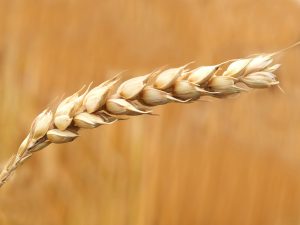 Grain handling can be a precarious business, as people in the agricultural industry well know. There are various hazards and dangers in handling, and accidents have been significant (and fatal) enough that OSHA has its section for the matter. Here’s what you need to know to get started on grain safety.
Grain handling can be a precarious business, as people in the agricultural industry well know. There are various hazards and dangers in handling, and accidents have been significant (and fatal) enough that OSHA has its section for the matter. Here’s what you need to know to get started on grain safety.
Common Hazards
The most common hazards involving grain include fires, explosions, falls, entrapment and suffocation, and even crushing. This can come from a variety of reasons.
Suffocation
Sometimes, grain bins become clogged up, requiring personnel to enter the bin and clear the blockage from the pipes so that the grain may flow freely again. But during the process of grain handling, the worker can get trapped within the bin and unable to climb out, leading to suffocation. Grain acts like quicksand—it could take very little time before a worker becomes engulfed and suffocated.
Explosions
Grain dust is extremely flammable and highly combustible. When ignited, fire spreads rapidly. A grain bin can trigger a tremendous explosion, causing severe damage to property and personnel near it. No incendiaries must be anywhere near a grain bin to reduce the risks.
Falls
Most grain bins’ height can lead to potential falls when workers climb on top to do maintenance work or grain handling. It’s critical to install safety handrails and other similar equipment around walking or climbing surfaces to prevent workers from slipping and plunging.
Safety Reminders
OSHA recommends companies that handle grain should keep all safety protocols and reminders in place. Powered equipment should be turned off and locked when not in use, and no one should be near or standing on moving grain lest they get buried in it. Body harnesses are highly recommended when doing grain handling that involves direct contact—a properly secured harness can save a life by helping others to yank out anyone that gets caught in the moving grain.
By keeping these hazards and safety precautions in mind, workers can avoid many common grain-handling hazards.
KC Supply specializes in providing all kinds of equipment, including safety equipment, for agricultural purposes. Visit KC Supply to find out more.


